1020
What are the things women chose men
Today's female wardrobe full of clothes worn by men. And who knows how many men's items and a woman "borrowed" all the men and did not give it back!
Dress
This woman stole clothing for men back in the XVII century., And, apparently, forever. But there were times when sundress akin in form and name of the Persian clothes serapa, described as follows: "long men's coat without sleeves." So I dressed, for example, Ivan the Terrible, "And it was sovereign dress - sundress road, Jarinje color with cherry obnizyu." Or earlier, in 1377, during the infamous Battle of the river drunk "Tatariv zdelali raspolohu, the rulers have fled to some sundresses."
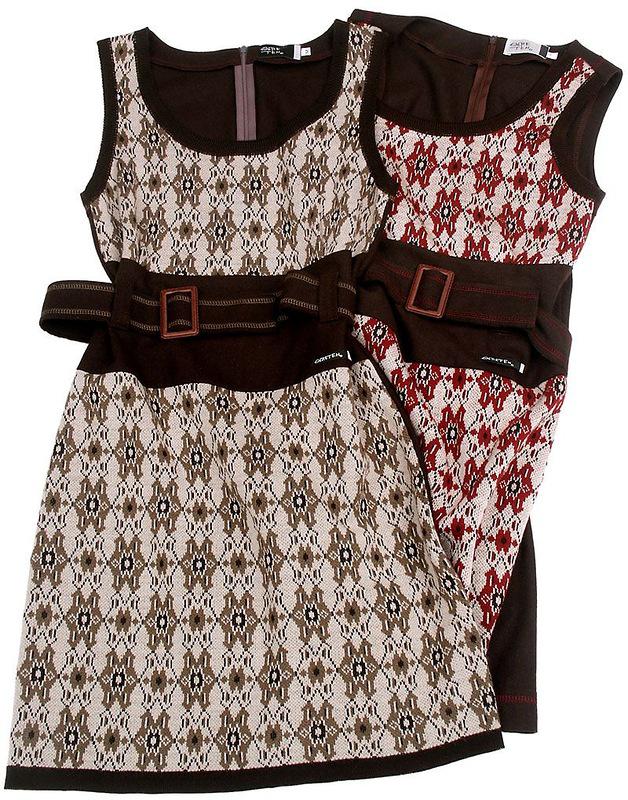
High Heel
"And under the toe of Easter egg rolling, and under a red heel - the bird will fly." What is it about? On the modern trendy women's boots on a hairpin? No, it's about shoes "swashbuckling free Cossack Stenka Razin." Women heel for a long time simply did not believe it was regarded as an attempt to rise "in the face of his master." It is only then, when manners have deteriorated, footwear rider, designed for powerful stirrup, was brutally stolen beauties
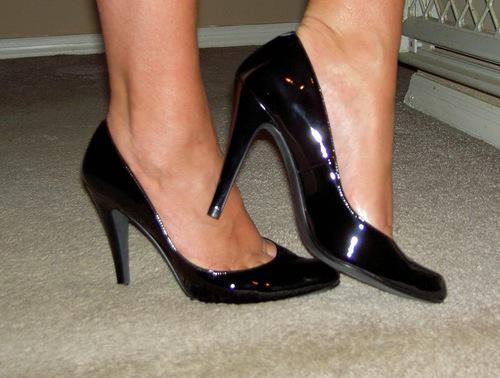
Decorated belt
During an attempt to wear leather belt with semi-precious stones, gold chains and blyashechkami current fashionista, getting it to the Ancient Rus would badly paid. Women - only bands, braided wool or flax. Men - leather sashes and belts with buckles. If a man was a soldier of high rank, the sign of his dignity was leather belt round with a respective set of bronze or silver plaques and linings.
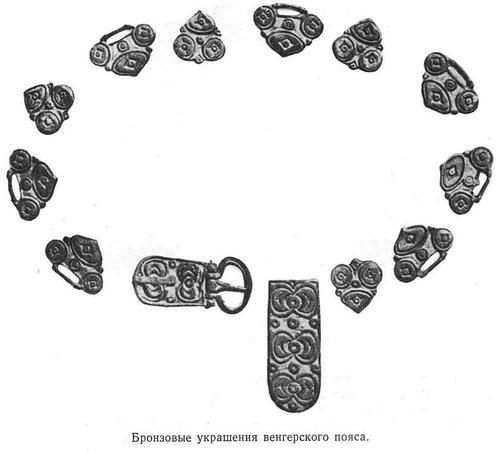
Tights
Typical character completely lost the battle for the men pants, which was conducted almost from the XIII century. In any case, the German proverb: "Who pants, in fact, and power" - was born then. So, please, in the 1980s dealt a "coup de grace" and pants, and power. Extremely tight military cavalry pants leather elk or deer that once those men emphasizing articles that below the belt, turned into a synthetic female trousers

Stockings
And this is a big hello from the Greek and Roman horsemen who rode without stirrups, and not to depart in disgrace from the saddle, grow a pretty thick and calf muscles, without which a horse can not be kept. To emphasize his male status (and fitting stockings - the best for this method), gentlemen just wearing thin stockings until the end of the XVIII century. Women were unnecessarily because their clothes had to toe and flaunt elegant stockings they still would not have happened. Is that during love entertainment.
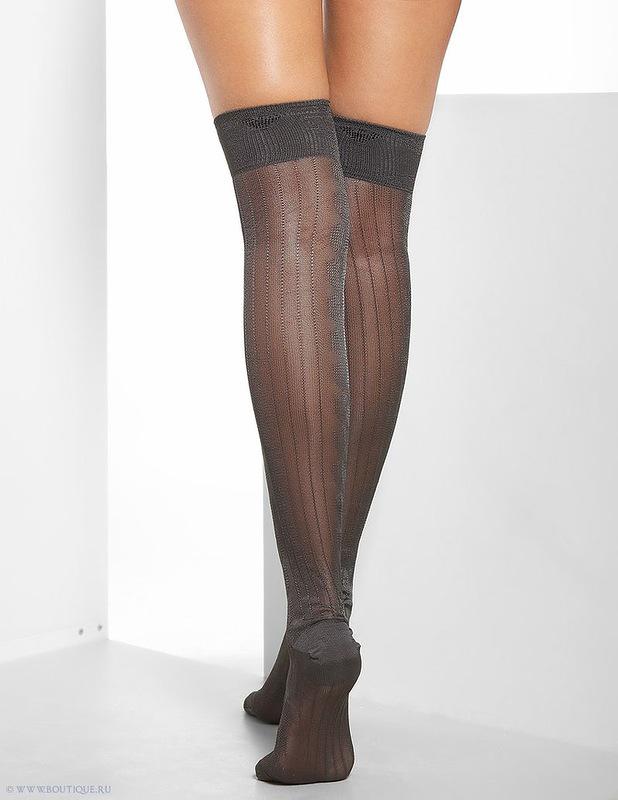
Lace
In good times, when D'Artagnan cranked his story with pendants, lace men were everywhere - on the collar, cuffs and lapels even riding boots. They were worn both men and women, but the latter still had the advantage. At least according to the Old Testament book of "Exodus", which refers to clothing elder brother Aaron Moses: "gold, blue, purple and chervlёnaya wool, linen, lace and twisted."
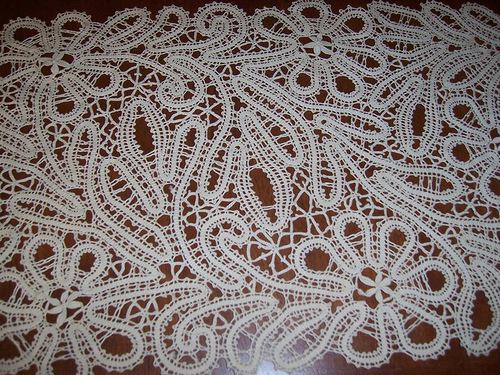
Wigs
In very ancient times, only men wore wigs, and not anyhow be necessary, but only chiefs and their approximate. Actually, high wig was something of a present general's cap. It visually enlarges the head and gave similarities with the lion, king of beasts, making it clear that this guy is better not to get involved. But in Roman times they were wearing women. And the purpose is quite unseemly. For example, Messalina, third wife of the emperor Claudius, thus disguised, going to a brothel.

Shadow
"The Prophet had a box for antimony, and every time he let his eyes - three times, first right, then - three times left" - wrote about his cousin Mohammed Abdullah ibn Abbas. Approximately so did the other men who lived in the Arabian Peninsula - eyeshadow help travelers cope with the reflected rays of the sun on the sand. Open this effect for yourself and pirates, is talking about the bright image of Jack Sparrow. However, instead of antimony used zhzhёnuyu plug.
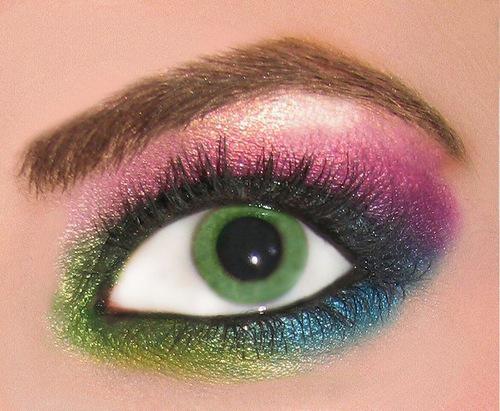
Source:
Dress
This woman stole clothing for men back in the XVII century., And, apparently, forever. But there were times when sundress akin in form and name of the Persian clothes serapa, described as follows: "long men's coat without sleeves." So I dressed, for example, Ivan the Terrible, "And it was sovereign dress - sundress road, Jarinje color with cherry obnizyu." Or earlier, in 1377, during the infamous Battle of the river drunk "Tatariv zdelali raspolohu, the rulers have fled to some sundresses."

High Heel
"And under the toe of Easter egg rolling, and under a red heel - the bird will fly." What is it about? On the modern trendy women's boots on a hairpin? No, it's about shoes "swashbuckling free Cossack Stenka Razin." Women heel for a long time simply did not believe it was regarded as an attempt to rise "in the face of his master." It is only then, when manners have deteriorated, footwear rider, designed for powerful stirrup, was brutally stolen beauties

Decorated belt
During an attempt to wear leather belt with semi-precious stones, gold chains and blyashechkami current fashionista, getting it to the Ancient Rus would badly paid. Women - only bands, braided wool or flax. Men - leather sashes and belts with buckles. If a man was a soldier of high rank, the sign of his dignity was leather belt round with a respective set of bronze or silver plaques and linings.

Tights
Typical character completely lost the battle for the men pants, which was conducted almost from the XIII century. In any case, the German proverb: "Who pants, in fact, and power" - was born then. So, please, in the 1980s dealt a "coup de grace" and pants, and power. Extremely tight military cavalry pants leather elk or deer that once those men emphasizing articles that below the belt, turned into a synthetic female trousers

Stockings
And this is a big hello from the Greek and Roman horsemen who rode without stirrups, and not to depart in disgrace from the saddle, grow a pretty thick and calf muscles, without which a horse can not be kept. To emphasize his male status (and fitting stockings - the best for this method), gentlemen just wearing thin stockings until the end of the XVIII century. Women were unnecessarily because their clothes had to toe and flaunt elegant stockings they still would not have happened. Is that during love entertainment.

Lace
In good times, when D'Artagnan cranked his story with pendants, lace men were everywhere - on the collar, cuffs and lapels even riding boots. They were worn both men and women, but the latter still had the advantage. At least according to the Old Testament book of "Exodus", which refers to clothing elder brother Aaron Moses: "gold, blue, purple and chervlёnaya wool, linen, lace and twisted."

Wigs
In very ancient times, only men wore wigs, and not anyhow be necessary, but only chiefs and their approximate. Actually, high wig was something of a present general's cap. It visually enlarges the head and gave similarities with the lion, king of beasts, making it clear that this guy is better not to get involved. But in Roman times they were wearing women. And the purpose is quite unseemly. For example, Messalina, third wife of the emperor Claudius, thus disguised, going to a brothel.

Shadow
"The Prophet had a box for antimony, and every time he let his eyes - three times, first right, then - three times left" - wrote about his cousin Mohammed Abdullah ibn Abbas. Approximately so did the other men who lived in the Arabian Peninsula - eyeshadow help travelers cope with the reflected rays of the sun on the sand. Open this effect for yourself and pirates, is talking about the bright image of Jack Sparrow. However, instead of antimony used zhzhёnuyu plug.

Source:
























